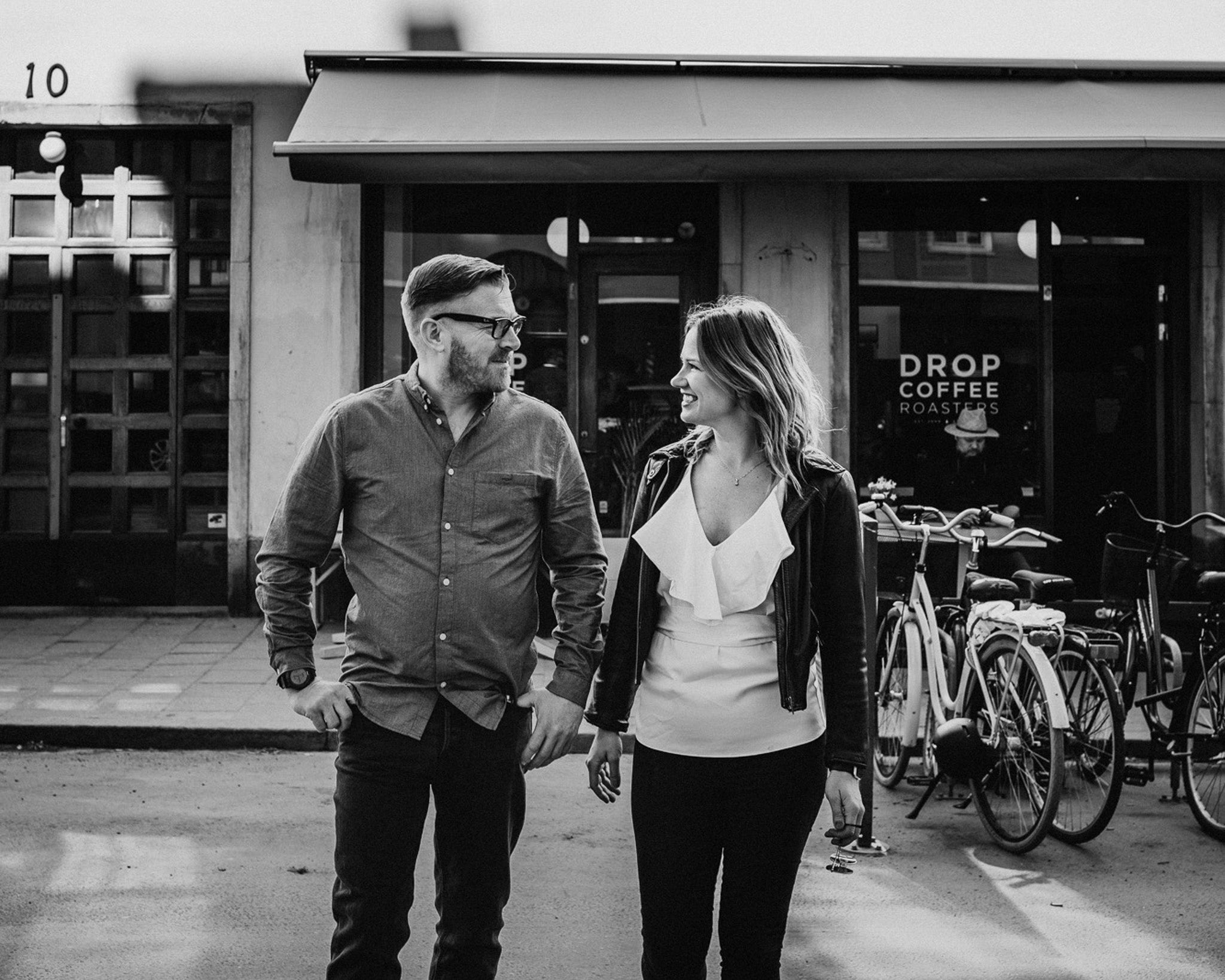Samaichacha, Caturra, Bolivia 2018
Flavour description: This is a sweet cup, with medium body, and a heavy mouthfeel like a mature red wine. Notes of milk chocolate, with the sweetness of pink apple, and a lasting aftertaste reminding of mature red wine. That the coffee is processed without water makes the coffee sweeter and more berry-like than the other washed processed coffee we have from Bolivia.
Colour: Light Orange
Category: Curious
Producer: Pedro- Pablo, Daniela and Pedro Rodriguez
Location: Aguarica in Samaipata region, Bolivia
Variety: Caturra
Processing: Washed processed without water
Harvest: July-August 2018
Elevation: 1550 - 1700 masl
Roast: Light to medium to present the natural characteristics of the coffee.
This is the first time that Drop is buying coffee from this region in Bolivia, but the producers are our familiar exporters Pedro- Pablo, Daniela and Pedro Rodriguez. They have been producing coffee in Samaipata for 4 years now, and this year is their first harvest! The extreme weather, and higher elevation give this coffee very different characteristics than the other Bolivian coffees that we are buying. In this coffee you find a mouthfeel and long aftertaste reminding of a mature red wine. There is still the apple like sweetness, and even a bit of crunch, like a fresh crisp apple.
They have been experimenting with different varieties at Samaichacha as well, they have planted Bourbon, Caturra as well as some Java. We have taken some of the Caturra this year, as it really showcases how different the coffees are tasting from different regions within Bolivia.
The Rodriguez Family and Sustainability
This is a very important relationship for us at Drop, and one we are very proud to have. We go to their farms for a visit every year during harvest, and stay at the mill, they have also made their way up to Stockholm to visit the team at Drop. We, as friends have been growing together for a few years now.
If it weren’t for the Rodriguez, Bolivian coffee would look a lot different today. They work under the name Agricafé as exporters, and we are buying all of our Bolivian coffees through them. They also have a sustainability project ‘Sol de Manana’, where they are working with other producers, providing them with fertilisers and plants, and advising, with their agronomical expertise. They also process the coffees from all of the producers we are buying from at their washing stations and dry mill. On top of all of this, they have farms of their own, including Alasitas, La Linda and Samaichacha.
Pedro Roudriguez started sourcing coffee from small coffee producers in 1986. His family own mills, and they process and exports coffee for other farmers in the Caranavi and Sud Yungas region. However, in the Samaipata region they are only processing their own coffee at their wet mill El Fuerte, washing without water, and dried for 95 hours. Without people like the Roudriguez family working in coffee in Bolivia, the future of Bolivian coffee would be at risk of disappearing, but with the steady decline of coffee production, the sustainability of their export business is in jeopardy.
In April 2019, the Roudriguez family received sustainability award from the Speciality Coffee Associations for Most Sustainable Business Model.
Samaipata Region
Just last year we visited this region for the very first time, therefore this is the first year we have bought any coffee from this region. Generally, this part of Bolivia is known for its tropical climate, nature and broad agricultural culture. There is a big difference between here and Caranavi, with weather as well as culture, it almost feels like another country.
The weather varies quite a bit, with temperatures during the day being around 25-30 degrees, and around 8 degrees in the night, which is considered very cold. This causes the cherries to take a longer time to ripen, and their mucilage becomes very thick, and the cascara is even more sweet.
In Samaipata there is a lot of magnesium in the soil, which is great for growing coffee, it means that the coffee plants are less susceptible to roja, or other fungi. All of these things contribute to a very unique taste profile.
Read more about Bolivia as a coffee producing country here.
